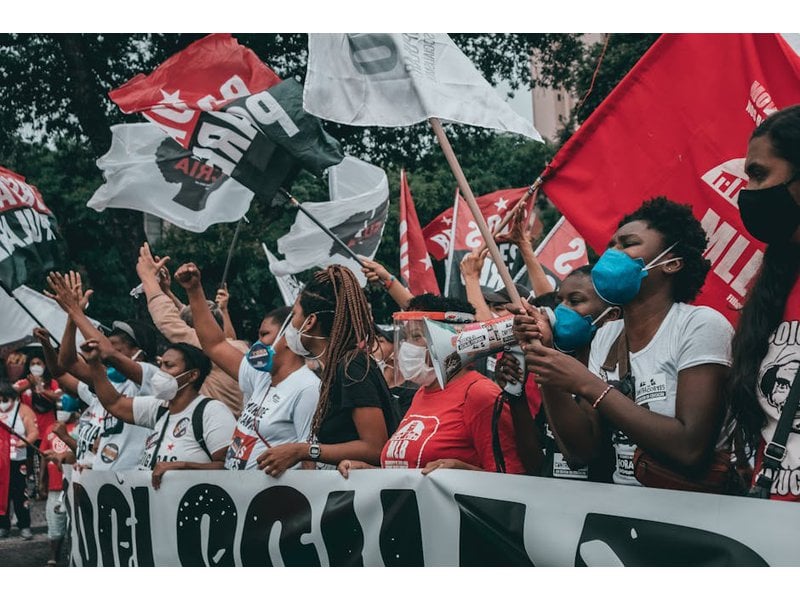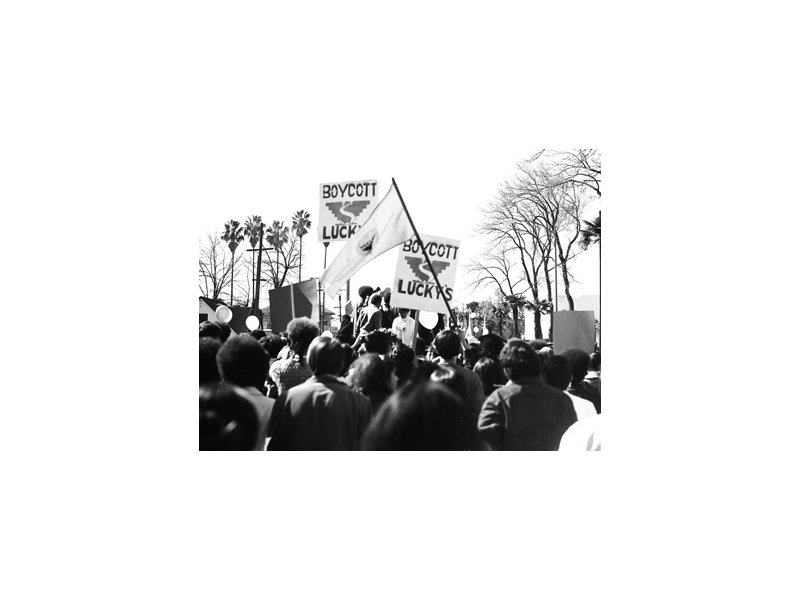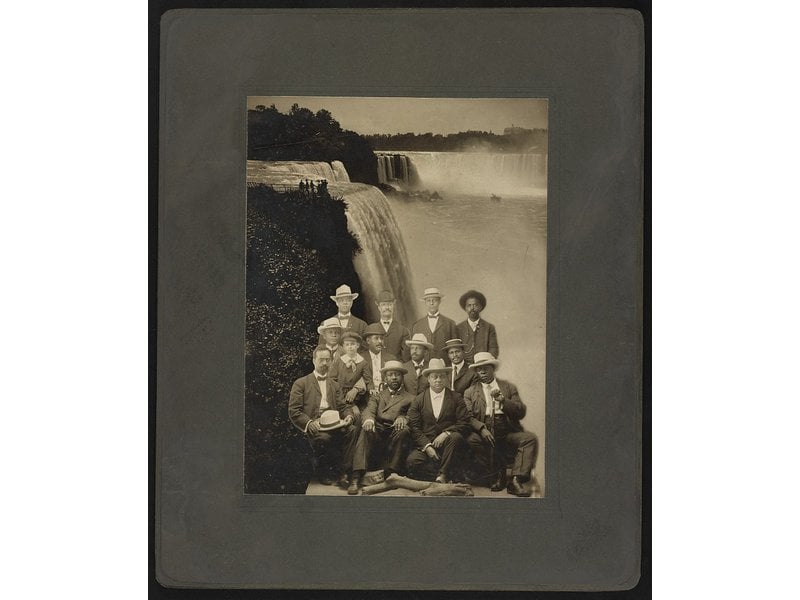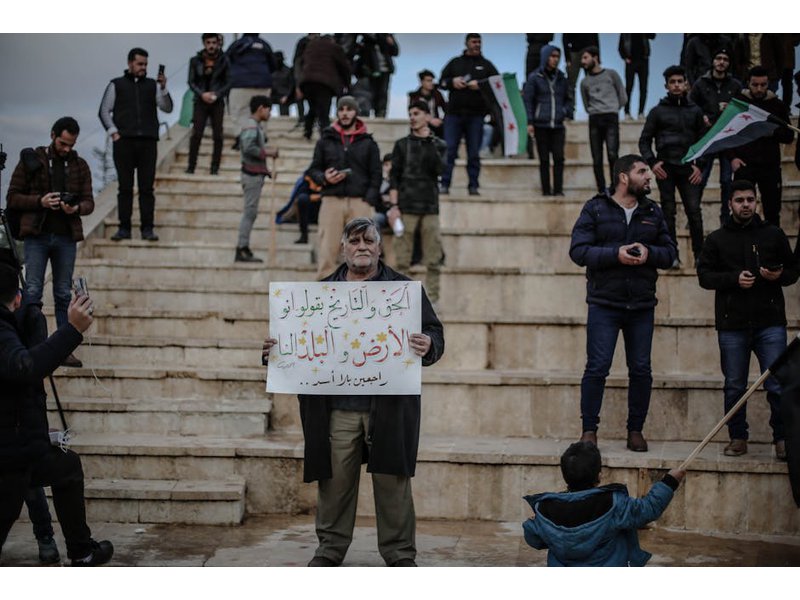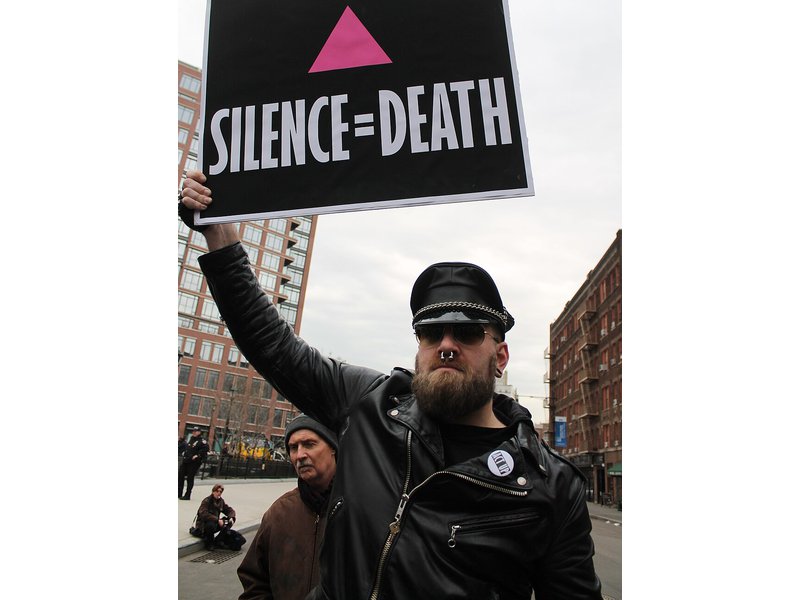124 boycott of elections

"Where there is reason to believe that an election will not be conducted fairly or where there is refusal to recognize the authority of the regime conducting the election, an opposition movement may refuse to put up candidates and may urge people to refuse to vote. The aim of such a boycott is usually to protest the use of the election to deceive people as to the degree of democracy present; or it may be an attempt to prevent the “real” issue or issues, as seen by the resistance group, from being overshadowed by “lesser” issues. Sometimes election boycotts have also been attempted by minority groups seeking to deprive the elected government of legitimacy and thereby making it more vulnerable to later attack by various means, including guerrilla warfare."...
Potentially awesome partners
Potentially problematic matches
High scoring campaigns using this method
Historical cases from the Nonviolent Action Database that used this method
Zambians campaign for independence, 1944-1964
In order to strengthen their hold on political and economic power, the white settlers of British-controlled Northern Rhodesia sought to unite the British colonial territories of Northern Rhodesia, Southern Rhodesia, and Nyasaland during the late 1930...
Armenians protest for resignation of Prime Minister Serzh Sargsyan, 2018
Since gaining independence from the Soviet Union in 1991, Armenia has spent almost two decades as a quasi-authoritarian state with the ruling Republican Party controlling most of its political, economic, and social institutions. Serzh Sargsyan became...
East Germans protest for democracy (The Peaceful Revolution), 1988-90
In 1988, the German Democratic Republic (GDR) had been under Soviet rule for more than 40 years, and the Berlin Wall had stood erect for nearly 30. Strict Socialist rule meant extreme limits on speech and action. Travel outside the country was prohib...
Lithuanians campaign for national independence, 1988-1991
Russia first occupied Lithuania and introduced a program of “Russification,” an attempt to eliminate Lithuanian language and culture in favor of Russian culture, in the mid-19th century. After 22 years of independence from Russia, the Molotov-Ribbent...
Andorrans seek universal male suffrage, 1933
Preceding the campaign of 1933, only the eldest man in an Andorran household could vote. Due to Andorra’s long life expectancy, this meant that even middle-aged men were often unable to vote.\n\nIn April 1933 a group of young Andorran men drove aroun...
Tasmanian Wilderness Society blocks dam construction (Franklin River Campaign) 1981-83
In 1976, the Hydro Electric Commission of Tasmania solidified their plans with the Australian government to build a dam across the Franklin and Gordon Rivers, in the Franklin-Gordon Wild Rivers National Park. The Tasmanian Wilderness Society formed n...
Congolese win independence from the Belgian Empire, 1959-60
In the 1950s, revolution was brewing in the Belgian Congo. Africans living in colonized countries felt the winds of change swirling as their mother countries in Europe struggled to stand back up after suffering often devastating defeats in World War ...
Finns resist Russification, end conscription, regain elections, 1898-1905
For much of the nineteenth century, Finland was under Russian rule. This began in 1809 when Finland was made part of the Russian Empire. As part of the Russian Empire, Finland was autonomous in domestic policy but not foreign policy. Finland was allo...
Ogoni people struggle with Shell Oil, Nigeria, 1990-1995
The Ogoni region is a highly oil-rich area in the Niger Delta area of Nigeria, populated by approximately 500,000 members of the Ogoni People. Since the Shell Petroleum Development Company discovered oil in Ogoniland in 1958, the region has been plag...
Hondurans campaign for the return of former President Zelaya, 2009-2011
The constitution of Honduras, established in 1982, did not provide structures for popular democratic participation. In June 2009, President Manuel Zelaya called for a referendum on whether a constituent assembly should look to rewrite the constitutio...
Low scoring campaigns using this method
Historical cases from the Nonviolent Action Database that used this method
Moldovan citizens campaign for new elections, 2009
The Party of Communists of the Republic of Moldova (PCRM) came to power in 2001. Since 2003 some Moldovans were in conflict with the government with regard to issues such as national identity and foreign policy. Many Moldovans still identified as Rom...
Black South Africans boycott Bantu education system, 1954-1955
In 1953 the South African Government passed the Bantu Education Act into law. This act gave the South African government the power to structure the education of Native South African children, separate from White South African children. This law was i...
Kefaya protests Mubarak's referendum and re-election, Egypt, 2005
Kefaya (meaning ‘Enough’ in Arabic), is the moniker for the grassroots coalition the Egyptian Movement for Change. Beginning in 2003, Kefaya was a group of Egyptians of various political parties and ideologies that first met to discuss the Egyptian p...
Naga campaign for leader to return to the Manipur Region, 2010
The Naga people have been entrenched in a largely violent struggle with the Indian government since the 19th century in an attempt to unify and secure the independence of areas in northeast India that are primarily populated by members of the Naga co...
Pakistanis in Sindhi struggle for democracy, 1981-1984
In July 1977 Z.A Bhutto, the democratically elected president of Pakistan, was removed from power by the Pakistani military, which was at that point under the control of General Muhammad Zia-ul Haq. General Zia promised to hold an election within nin...
